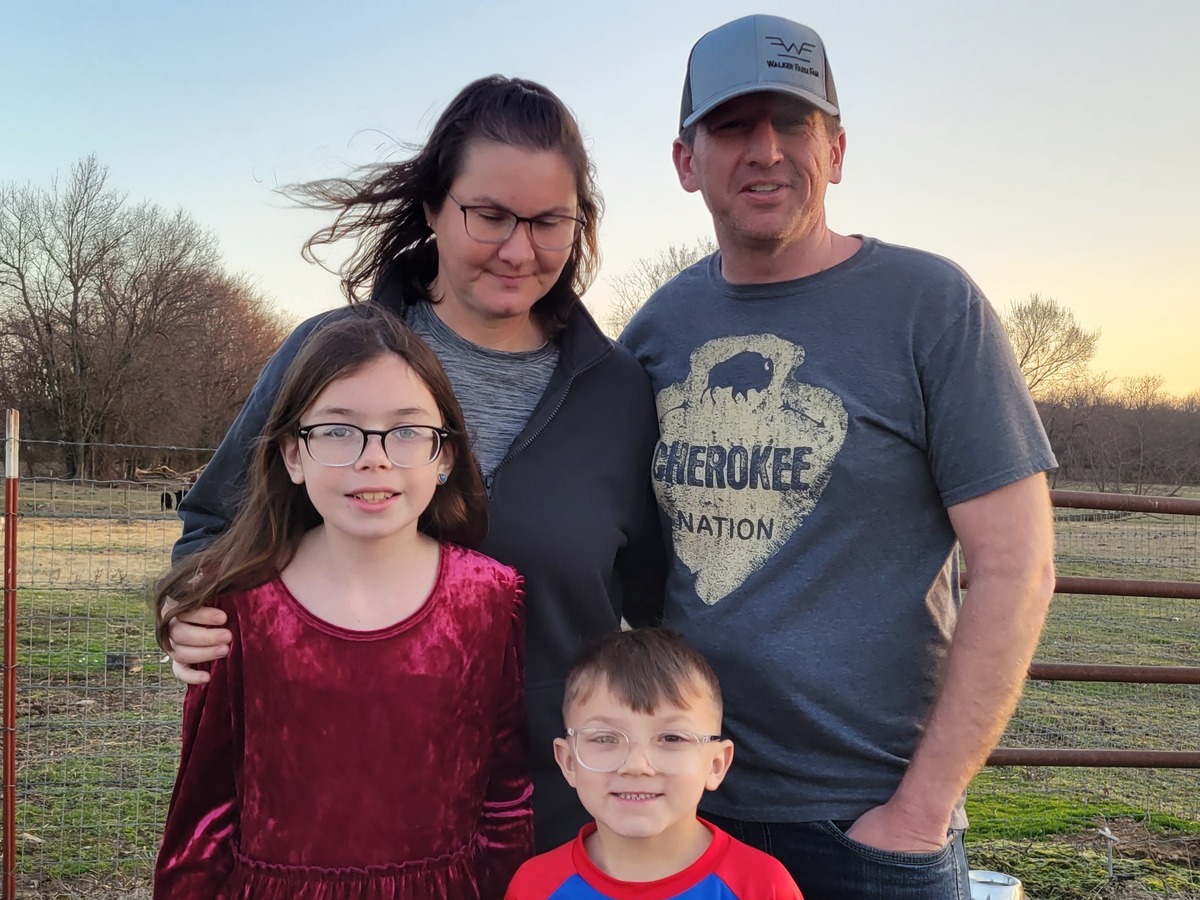
Mazzy, age 9, and Ransom, age 6, were adopted by Gary and Cassie Walker after their biological parents got caught up in the opioid epidemic. The Walkers have adopted or fostered nine Cherokee kids during the drug crisis. Brian Mann/NPR hide caption

Mazzy, age 9, and Ransom, age 6, were adopted by Gary and Cassie Walker after their biological parents got caught up in the opioid epidemic. The Walkers have adopted or fostered nine Cherokee kids during the drug crisis.
Brian Mann/NPRThe Cherokee Nation has been hit hard by opioid addiction and fentanyl-related overdose deaths. But the tribe has a plan to heal.
Like many communities around the country, the Cherokee Nation received settlement money from big drug companies and pharmacy chains accused of fueling the opioid crisis. The tribe is investing that $100 million in programs to support treatment, harm reduction and a fight against stigma.
Tribal leaders say the funds will save lives and save families.
NPR's addiction correspondent Brian Mann traveled to Oklahoma to see how the Cherokee Nation is fighting the opioid crisis.
Email us at
This episode was produced by Erika Ryan with engineering by Ted Mebane and Patrick Murray. It was edited by Andrea de Leon and William Troop. Our executive producer is Sami Yenigun.

 Live Radio
Live Radio